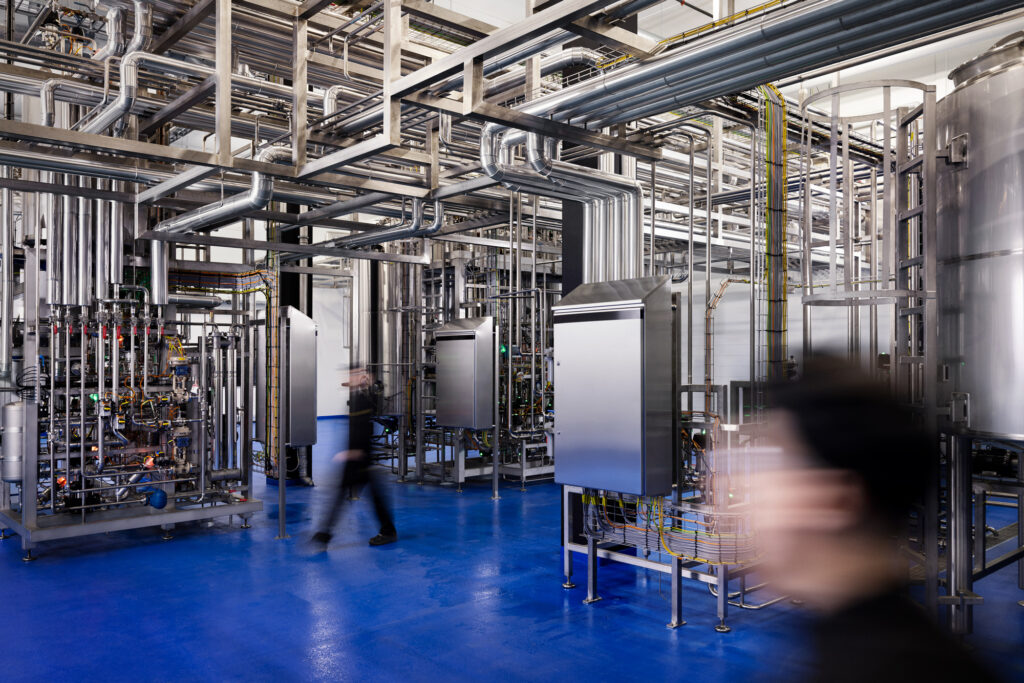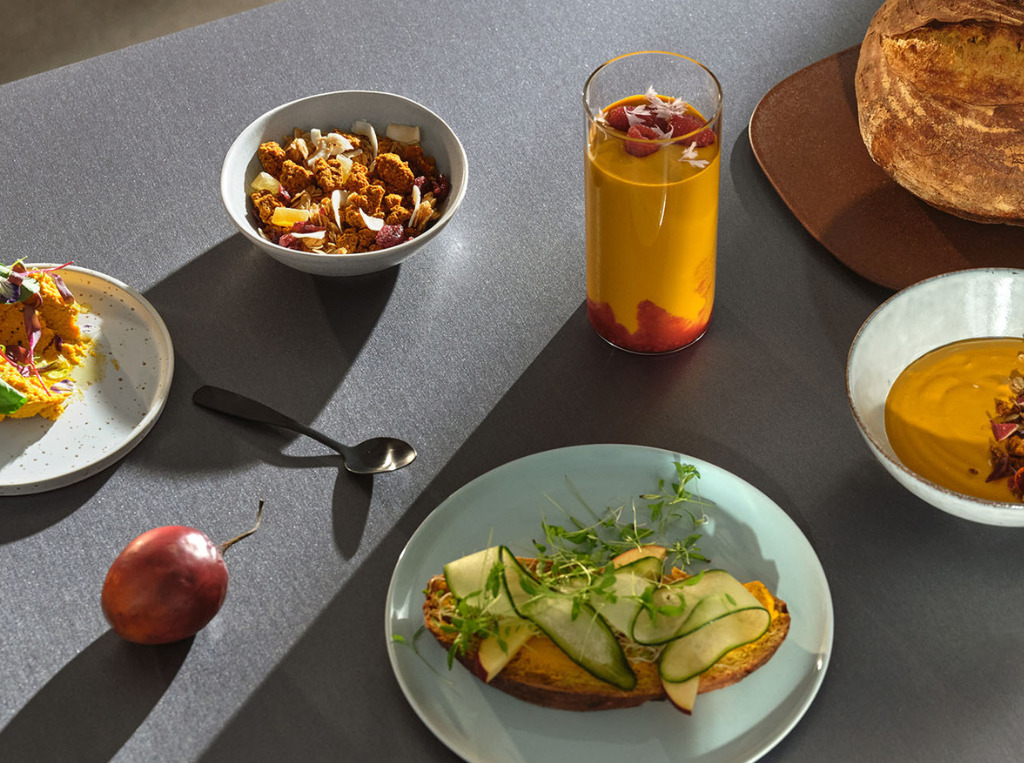Solar Foods Opens World’s First Commercial-Scale Facility for Air Protein
)
Months after closing an €8M Series B investment round to support the construction of its first commercial-scale factory, Solar Foods’ Factory 01 is now operational and will help the startup mass-produce its Solein air protein.
So far, the fermentation-derived protein has been limited to small quantities produced in the company’s pilot lab in Espoo (near Helsinki). But now, Solar Foods will be able to produce up to 160 tons of its protein annually – this means it can grow the same amount of protein per day as a 300-cow dairy farm.
“We will be able to deliver quantities that allow food producers for the first time to create large batches of Solein-powered products,” said co-founder and CEO Pasi Vainikka. “While we have been able to offer consumers a small taste, finding a Solein-based food in your local supermarket has not been possible. Soon it will be.”
Solein is to food what quantum computing is to information processing

Courtesy: Solar Foods
Solar Foods was spun out from the VTT Technical Research Centre of Finland and LUT University in 2017 to commercialise Solein, which it calls the “world’s most sustainable protein”. It uses microbial fermentation to turn carbon dioxide, hydrogen and oxygen (replacing sugar as an energy source) into its protein ingredient, in a process that does away with the need for fertilisers and pesticides, irrigation and open land.
The fermented protein isn’t dependent on water, weather, climate conditions or agriculture, and can even be produced in desert-like conditions, the Arctic and outer space (in fact, it has partnered with the European Space Agency to develop a system for producing food on Mars). The microbes are grown in a liquid form, and later dried into an orange-yellow powder.
A life-cycle analysis conducted by the company suggests that Solein’s GHG emissions are just 1% of those generated by conventional meat, and 20% of plant-based proteins. In terms of nutrient composition, the ingredient has 65-70% of protein, 5-8% of fat, 10-15% of dietary fibre and 3-5% of mineral nutrients. Its macronutrient profile is said to be akin to dried soy or algae, and it contains iron and B vitamins, which are essential nutrients often derived from animal-based foods.
The company has managed to increase the productivity of its microbes by tenfold since 2020. To outline its importance for the food industry, Vainikka compared it to the impact of quantum computing on information processing. “Just like with quantum computers, it’s no longer a question of will cellular agriculture become a thing: it’s evident that it will. The question is more about who leads the charge”, he said.
”We are exploring the possibilities of this scientific platform on a new scale. Factory 01 demonstrates it is possible to grow protein from start to finish under one roof, year-round even in the harsh Northern conditions of Finland – and to do it all sustainably and in a commercially viable manner,” he added.
This has been recognised by both public and private investors. Among Solar Foods’ backers are Agronomics, Fazer and Springvest Oyj, as well as the Pharmacy Pension Fund of Finland, the state-owned Finnish Climate Fund, and Business Finland. The latter, in fact, provided the company with €34M in grant funding in 2022 to support the construction of Factory 01 – this was an initial grant resulting from the approval of Solar Foods’ €600M investment programme as the EU Commission’s first hydrogen-based Important Project of Common European Interest (IPCEI). Factory 01 is the first IPCEI to be completed.
Solar Foods targets ‘billion-euro’ status

Courtesy: Solar Foods
Solar Foods’ highly automated Factory 01 will see most of its employees work in the facility’s control room, rather than on the factory floor. The plant will also serve as an R&D and future product development hub, while providing valuable data on the way to its next milestone, Factory 02. If this is built on European soil, Business Finland has earmarked a further €76M investment to support its construction.
“Factory 01 is already a bona fide factory, the kind you could see in an industrial park. But to realise Solein’s full potential, we think bigger. That’s why Factory 02 will eventually scale up the bioprocess as well as the production process: it would not be located in an industrial park, it would more likely fill an industrial park,” said Vainikka. “Our long-term aim is to be a billion-euro company. The global protein market is a €2T business and we have shown that Solein has a place within that market.”
And show its place it has. After receiving regulatory approval in Singapore in October 2022, it debuted Solein at Singapore restaurant Fico, as part of a vegan chocolate gelato using the flavourless protein. And earlier this year, it partnered with its majority shareholder Fazer to launch a Taste the Future chocolate snack bar in the city-state.
These rollouts showcase the versatility of Solein, which can vanish into foods and has been demoed in over 20 different dishes – think burgers, eggs and meatballs. To explore these applications, it has established a strategic partnership with Japanese food manufacturer Ajinomoto, which will see them develop new products and test their market feasibility in Singapore. Now, they’re looking to expand their link-up overseas too.
It’s part of Solar Foods’ bid to enter other markets globally. It’s set to enter the US market later this year, and has also submitted a dossier to the European Food Safety Authority. The startup expects the EU process to be completed by the end of 2025, with Vainikka hinting the region could see a range of new products using Solein in 2025-26. The company is looking into the UK too.
Last week, Solar Foods also received a Nasdaq Green Equity Designation – it’s a recognition for companies where over half of the turnover is derived from green activities. It’s not the only company in the air protein space, which is populated by Kiverdi’s Air Protein, NovoNutrients, Calysta (all US), Arkeon Biotechnologies (Austria), and Deep Branch Biotech (UK) as well.
